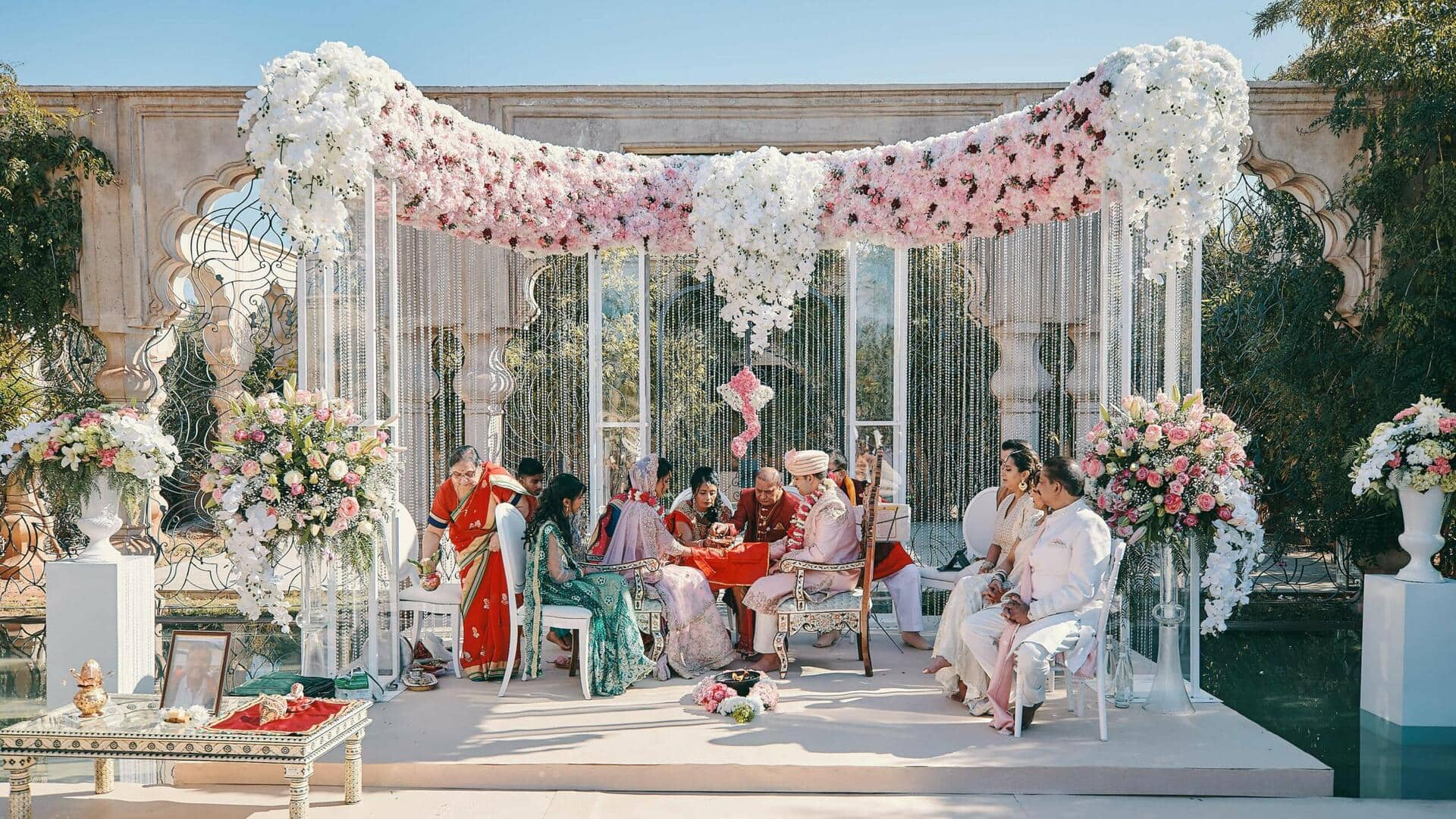
How to get married on Blockchain?
What's the story
Blockchain technology is revolutionizing the traditional wedding experience, offering a unique and secure way to commemorate these special occasions. This innovative approach allows couples to preserve important memories, documents, and even digital assets related to their wedding day on a blockchain. While not legally binding, a blockchain wedding serves as a symbolic commitment between partners celebrating their relationship.
Symbolic significance
Blockchain weddings: A symbolic commitment
This unique format is especially meaningful for couples who face legal or societal challenges to traditional marriage. By recording their union on a blockchain, they can publicly affirm their bond in an innovative way. The pledge of the couple is permanently inscribed into a digital ledger, ensuring it remains verifiable and tamper-proof.
Exchange
Digital tokens and NFTs: New-age wedding rings
In some blockchain weddings, couples exchange digital tokens as vows/rings during their ceremony. Each token is unique and stored on the blockchain, ensuring that the exchange is permanently recorded. Couples can also store their marriage certificate/license as a digital asset, in the form of a non-fungible token (NFT). These tokens can be personalized with meaningful elements like vows, digital wedding rings, or special artwork representing their relationship.
Agreements
Smart contracts and digital priests in blockchain weddings
Smart contracts, computer programs that function as agreements between two parties on the blockchain, can be used to outline the couple's terms for marriage. Some blockchain weddings even feature a "digital priest," an online officiant who adds a ceremonial touch to the event. Platforms like "Marriage-Chain" on GitHub and Web3Wed's "Words of Love" season offer couples the chance to register their marriage using blockchain technology.
Digital milestones
Blockchain weddings: A timeline of digital unions
The first blockchain-based wedding took place in 2014, when David Mondrus and Joyce Bayo tied the knot via a QR code at a Bitcoin conference. In 2021, Rebecca Rose and Peter Kacherginsky from Coinbase, got married on Ethereum's blockchain using an Ethereum smart contract that issued tokenized "rings" NFTs. Another Indian couple, Shruti Nair and Anil Narasipuram, also chose to digitize their love using NFTs.